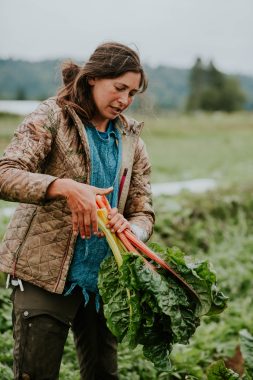Stable long-term farmland access is essential for growing a sustainable agricultural business, but finding it is one of the biggest challenges facing farmers and ranchers today. Contributing factors to this pervasive issue are plentiful, and for Indigenous farmers, the difficulty of accessing their own ancestral lands adds an especially noxious layer. Michelle Week (she/her) intimately knows the heartache of navigating these trials, and she also knows the success of persevering through the ups and downs of different leasing relationships, harnessing her inner wisdom and community of support to grow a thriving farm business along the way. Michelle is the owner and farmer of Good Rain Farm, a mixed produce CSA farm near Portland, Oregon, focused on decolonizing diets, revitalizing culture, food sovereignty and the returning to reverent sustainable land stewardship. In this episode, Michelle shares her story of seeking stable farmland access and the hard lessons she’s learned over many years and through many land-based relationships, leading up to her current pursuit: reclaiming stolen Native land to ensure her community’s continued permanent and sustained land access and stewardship of the land.
Farm Commons is grateful to have worked with Michelle as a member of the 2022 Collaborative Leadership Fellowship.
For a full transcript of this episode, please click here.

